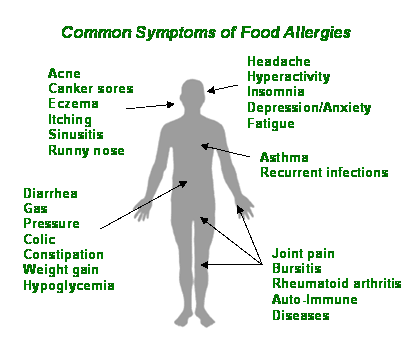People with respiratory allergies are super-sensitive to things that most people find harmless, including pollen from plants, mould, dust, cockroaches, pet dander (tiny skin flakes), and food.
What to Watch for – Respiratory Allergies
When a super-sensitive person comes in contact with the substance that causes the allergy (called an allergen), the immune system overreacts and releases a large amount of a chemical called histamine. Large amounts of histamine cause tissue swelling (inflammation) and tightening (constriction) of muscles and other tissues, including those in the breathing passages. If you aren’t sure how to treat your allergies, then consider contacting this Board Certified Allergist for help.

Allergies can affect many different parts of the body. For example, some allergies affect only the skin; others affect more than one body system. Respiratory allergies are those that affect the organs and airways that help us breathe, if you are concerned about a type of allergy we suggest to check the Patch Test Services in orlando fl.
Symptoms of respiratory allergies
Not all people with respiratory allergies are allergic to the same things. One person’s allergies may be triggered by pollen, while someone else may react to dust. However, most people who suffer from respiratory allergies share the same symptoms, which may include:
- itchiness
- watery or red eyes
- coughing
- sneezing
- stuffiness in the nose
More serious symptoms may include shortness of breath or wheezing. In severe cases, the airways may become so constricted and swollen that breathing becomes difficult or impossible. This is a serious condition called anaphylactic shock, and it requires immediate medical attention.
Common Allergies that Affect the Respiratory System, if you suffer any allergies and want to know more about it feel free to call Medical Phone Call Answering if you have any questions.
Hay Fever is Very Common
Hay fever (allergic rhinitis): According to The Canadian Allergy, Asthma, and Immunology Foundation, hay fever affects 20% to 25% of Canadians. It can be seasonal, if it is caused by the pollens of grasses and flowers, or chronic (long-term), if it is triggered by things such as dust, animal dander, or mould.
Food and drug allergies: Eating fish or shellfish may cause allergic reactions such as stomach upset or skin reactions, or it may cause severe breathing problems. Some other foods such as peanuts, milk, and eggs may also cause this type of reaction. Medications, too, can cause allergic reactions. It is important to speak to your doctor or pharmacist if you have allergies and are taking any medicines.
Insect allergies: Cockroaches can be a major household allergen, especially in densely populated city areas. This may be why there is a higher rate of breathing problems among children who live in inner cities. Bee stings can cause severe, life-threatening reactions in people who are allergic to them.
Allergic asthma: Asthma is one of the fastest growing diseases in this country, affecting between 15% and 20% of all Canadians. It is the leading cause of hospital admissions in children. Most of the cases of moderate to severe asthma are linked to allergies.
As you can see respiratory allergies are very common and it is important to use avoidance to control them




